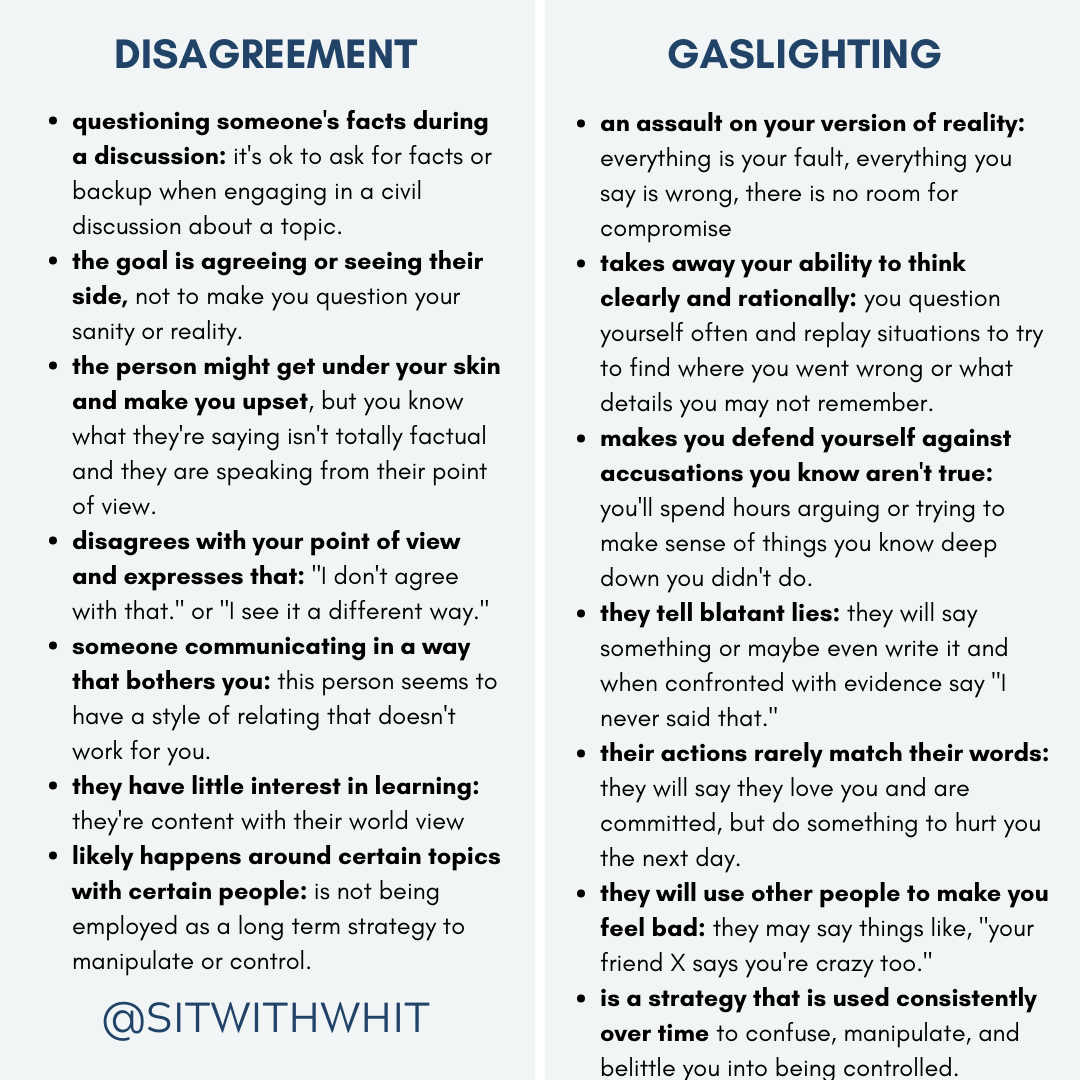The Difference Between Gaslighting and Disagreements
Ok, this is a really tricky one to write about and I hope I’m somewhere in the ballpark of getting this right. I’m majorly open to feedback and critique on this one. Promise 😬.
Do You Know What Gaslighting Really Means?
Gaslighting has become such a buzzword and I’m seeing it used everywhere now. This is good because it’s making us more aware. It’s bad because it’s watering down the real definition and making it harder for abuse survivors to identify how absolutely destructive gaslighting can actually be.
What is Gaslighting?
Gaslighting is the conscious manipulation and control of another person's perspective for unethical reasons over an extended period of time. It’s not the same thing as getting in a disagreement.
A gaslighter will loveee to tell you that you’re just “disagreeing” though. There are absolutely situations where politicians and people in power use “disagreements” or “differences in opinion” as a way to cover up gaslighting. But, let’s remember that all of these behaviors happen across a spectrum. Someone disagreeing with us does not always means they’re gaslighting us AND sometimes people say “agree to disagree” as a way to gaslight and deny the very real lived experience of minorities and marginalized communities.
I’m honestly just fleshing this out myself and I think there’s a lot of grey area in the middle, so please if you have thoughts on this share them below. I’d love to learn from all of you too.

